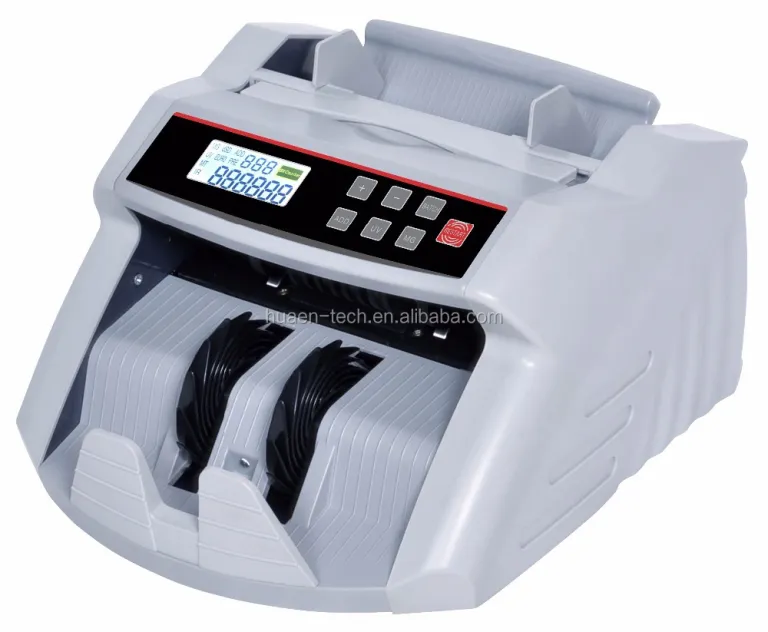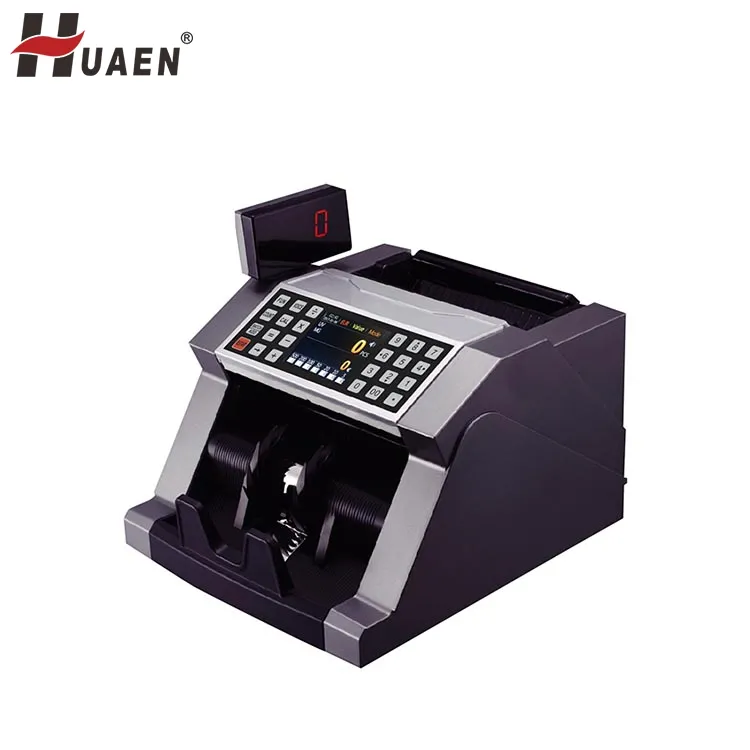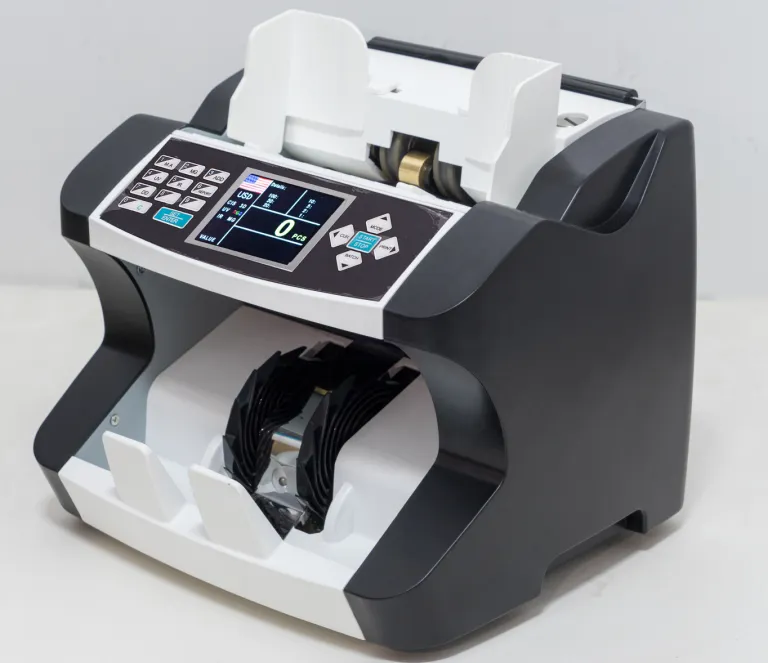The Advantages Of Money Counting Machines In Banking
Efficiency is paramount in banking. Every second counts and accuracy is non-negotiable. As the backbone of financial transactions, banks handle vast amounts of cash daily. Traditional methods of counting money are not just time-consuming but also prone to errors. Enter the money counting machine—a revolutionary tool transforming banking operations.
Money-counting machines are now integral to modern banking, offering speed, precision, and enhanced security. These devices streamline cash handling processes, reduce human error, and provide a layer of counterfeit detection.
This blog will explore the advantages of money-counting machines in banking, diving into their functionalities, benefits, and future trends.
Benefits Of Using Money Counting Machines In Banks
Money-counting machines are game-changers for banks, offering numerous advantages that enhance efficiency, accuracy, security, cost-effectiveness, and customer satisfaction. Let's dive into these benefits in detail.
Increased Efficiency and Speed
One of the most significant benefits of money-counting machines is the dramatic increase in efficiency and speed. Manual counting is slow and labor-intensive, often requiring multiple counts to ensure accuracy. In contrast, money-counting machines can process thousands of bills per minute with unmatched precision. This efficiency not only saves time but also allows bank staff to focus on more critical tasks, such as customer service and financial consulting.
For instance, a machine can count a stack of 1,000 bills in a minute, whereas manual counting could take several minutes, especially if recounts are necessary due to human error. This time-saving aspect becomes particularly crucial during peak hours, enabling banks to handle more transactions swiftly and efficiently.
Enhanced Accuracy
Accuracy is paramount in banking. Human errors in manual counting can lead to significant discrepancies, financial losses, and operational inefficiencies. Money counting machines eliminate these risks by providing accurate counts every time. Equipped with advanced sensors and counting mechanisms, these machines ensure each bill is counted correctly, regardless of its condition or denomination.
For example, machines can detect double notes, half-notes, and even damaged bills, which might be overlooked by manual counting. This high level of accuracy not only boosts operational efficiency but also enhances trust and reliability in the bank's cash handling processes.
Improved Security
Counterfeit money poses a severe risk to banks, potentially leading to substantial financial losses and damage to reputation. Advanced money-counting machines come with sophisticated counterfeit detection features, such as ultraviolet (UV), magnetic (MG), and infrared (IR) sensors. These sensors meticulously scan each bill for signs of forgery, ensuring only genuine currency passes through.
Incorporating these machines into daily operations adds a vital layer of security. Banks can confidently accept and process cash, knowing that any counterfeit bills will be detected and separated. This capability protects the bank and its customers from fraud, maintaining the integrity of financial transactions.
Cost-Effectiveness
While the initial investment in money-counting machines might seem significant, the long-term cost savings are substantial. By automating the counting process, banks can reduce the labor required for manual counting and reconciliation. This reduction in labor costs, combined with the elimination of errors and discrepancies, leads to significant financial savings over time.
Moreover, the enhanced efficiency and accuracy provided by these machines translate into faster service and higher customer throughput. Banks can serve more customers with the same number of staff, maximizing resource utilization and operational efficiency.
Customer Satisfaction
In today's fast-paced world, customers value speed and efficiency. Long wait times and slow service can lead to dissatisfaction and loss of business. Money counting machines enhance customer satisfaction by speeding up cash transactions and reducing wait times.
When tellers can quickly and accurately count deposits and withdrawals, customers experience faster, smoother transactions. This improved service speed enhances the overall customer experience, fostering loyalty and satisfaction. Furthermore, banks that offer quick and reliable service gain a competitive edge in the market, attracting more customers and retaining existing ones.
How Money Counting Machines Are Used In Banks
Money counting machines have become an integral part of banking operations, seamlessly integrating into various aspects of daily cash handling and transaction processes.
Integration into Banking Operations
Efficient integration of money-counting machines into banking operations ensures that both frontline and back-office tasks are streamlined, enhancing overall productivity and accuracy.
Frontline Operations
Money counting machines are commonly used at teller stations and customer service points. Tellers can quickly count deposits and withdrawals, ensuring accuracy and efficiency. This integration speeds up transactions, allowing banks to serve more customers in less time.
Back Office Operations
In the back office, money-counting machines play a vital role in vault management and cash handling. They assist in daily cash reconciliation, ensuring that all transactions are accurately recorded. This integration helps maintain an organized and efficient cash management system, reducing the risk of errors and discrepancies.
Staff Training and Utilization
Proper staff training and utilization are essential to maximizing the benefits of money-counting machines, ensuring they are used effectively and maintained correctly.
Training Programs
Proper training is essential for maximizing the benefits of money-counting machines. Banks should implement comprehensive training programs to ensure that staff can operate these machines effectively. Training should cover machine functionalities, troubleshooting, and maintenance practices.
Best Practices
Adopting best practices ensures the optimal use of money-counting machines. Regular maintenance and software updates are crucial for keeping the machines in top working condition. Banks should establish protocols for routine checks and address any issues promptly to avoid disruptions in service.
Key Features To Look For In A Bank Money Counting Machine
When selecting a money-counting machine for your bank, several key features ensure optimal performance and reliability.
● Counting Speed: The counting speed of a money counting machine is a critical factor. Machines with higher counting speeds can handle larger volumes of cash quickly, making them ideal for busy banking environments. When selecting a machine, banks should consider their average cash handling volume to choose a model that meets their needs.
● Capacity: The capacity of the machine's hopper and stacker also matters. Machines with larger capacities can handle more bills at once, reducing the need for frequent refilling and emptying. This feature is particularly beneficial for banks with high cash transaction volumes.
● Counterfeit Detection: Counterfeit detection is a must-have feature for any bank money-counting machine. Advanced models use UV, MG, and infrared (IR) sensors to detect fake bills. This feature not only protects the bank from financial losses but also maintains customer trust.
● Error Detection: Machines equipped with error detection capabilities can identify issues such as miscounts, double notes, and jams. This functionality ensures accurate counts and minimizes disruptions, enhancing the reliability of the counting process.
● Display and Controls: A user-friendly interface with a clear display and intuitive controls is essential for efficient operation. Machines with touchscreen displays and easy-to-navigate menus simplify the counting process, reducing the learning curve for bank staff.
● Software Integration: Compatibility with banking software systems is another key feature. Machines that integrate seamlessly with existing banking software can streamline operations, allowing for automatic data transfer and reporting. This integration enhances overall efficiency and accuracy.
● Build Quality: Durability is crucial for machines used in high-traffic banking environments. Machines made from high-quality materials can withstand constant use and minimize the need for frequent repairs. Banks should invest in robust machines to ensure long-term reliability.
Conclusion
Money-counting machines have revolutionized the banking industry by offering unparalleled efficiency, accuracy, and security. These devices significantly reduce the time and labor involved in cash handling, allowing banks to process transactions quickly and accurately. With advanced features like counterfeit detection and mixed denomination counting, money-counting machines enhance operational security and streamline cash management processes.
Investing in these machines leads to substantial long-term cost savings, reducing labor costs and minimizing errors. Additionally, the improved speed and accuracy of transactions contribute to higher customer satisfaction, giving banks a competitive edge in the market.
As technology continues to evolve, the future of money-counting machines looks promising with advancements in AI and integration with digital banking platforms. These trends will further enhance their functionality, making them an indispensable tool for banks of all sizes.

Huaen PRODUCTS








